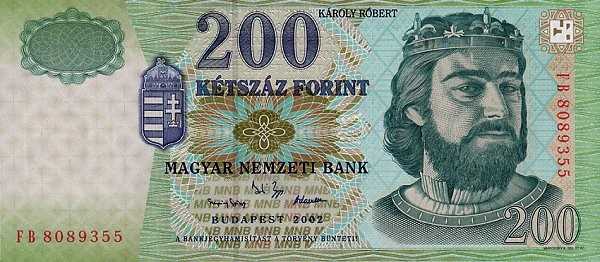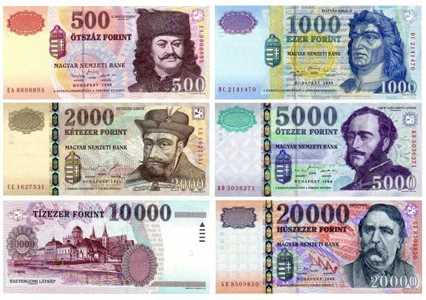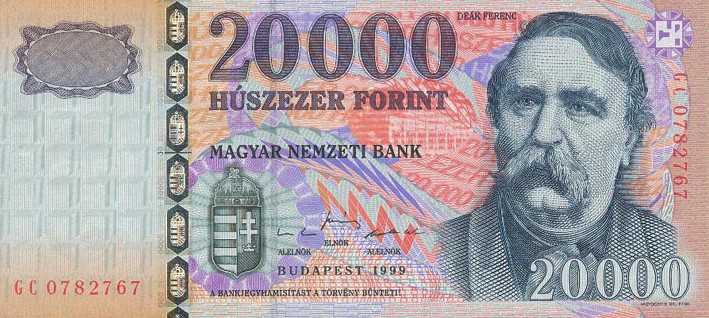What is the Hungarian Forint?
The Hungarian Forint (HUF) is the official currency of Hungary. It has been in circulation since 1946, replacing the previous currency, the Hungarian pengő. The forint is abbreviated as Ft, and its symbol is “Ft”.
The forint is issued and regulated by the Hungarian National Bank, which is the central bank of Hungary. It is used for all transactions within the country, including buying goods and services, paying bills, and wages.
The forint is divided into 100 fillér, although the fillér is no longer in circulation and is considered obsolete. All prices are now rounded to the nearest forint.
Banknotes in circulation include denominations of 500 Ft, 1,000 Ft, 2,000 Ft, 5,000 Ft, 10,000 Ft, 20,000 Ft, and 50,000 Ft. Coins are available in denominations of 5 Ft, 10 Ft, 20 Ft, 50 Ft, and 100 Ft.
Overall, the Hungarian Forint plays a crucial role in the economy of Hungary and is essential for conducting daily transactions within the country.
How does the Hungarian Forint work?
The Hungarian Forint (HUF) is the official currency of Hungary. It is regulated and issued by the Hungarian National Bank. The forint is subdivided into 100 fillér, although the fillér coins are no longer in circulation.
The Hungarian Forint operates on a floating exchange rate system, meaning its value is determined by the foreign exchange market. This means that the exchange rate of the forint can fluctuate based on supply and demand factors, such as economic conditions, interest rates, and investor sentiment.
Exchange Rate Policy

The central bank’s main objective is to maintain price stability and support sustainable economic growth. It aims to keep inflation within a target range and ensure a stable exchange rate to promote confidence in the forint.
However, the Hungarian Forint is still subject to market forces, and its value can be influenced by external factors beyond the control of the central bank. Economic events, political developments, and global market trends can all impact the exchange rate of the forint.
Using the Hungarian Forint
The Hungarian Forint is widely accepted as a means of payment within Hungary. Cash is commonly used for smaller transactions, while credit and debit cards are widely accepted for larger purchases. ATMs are also readily available throughout the country.
When traveling to Hungary, it is advisable to exchange your currency for Hungarian Forints at a bank or currency exchange office. It is generally more convenient to have local currency for daily expenses and to avoid potential fees associated with using foreign cards.
It is important to keep in mind that the exchange rate can vary between different providers, so it is recommended to compare rates and fees before making any currency exchanges.
Hungarian Forint HUF: Strategy & Education

One of the key factors to consider when developing a strategy for investing in the Hungarian Forint is the country’s economic stability. Hungary has a diverse and growing economy, with industries such as manufacturing, agriculture, and tourism contributing to its GDP. This stability can provide a solid foundation for the value of the Forint.
Another important aspect to consider is the Hungarian government’s monetary policy. The National Bank of Hungary plays a significant role in managing the country’s currency and interest rates. Keeping a close eye on the bank’s policies and decisions can help investors make informed decisions about when to buy or sell the Forint.
Additionally, it is advisable for investors to diversify their portfolio when investing in the Hungarian Forint. By spreading investments across different currencies and asset classes, investors can mitigate risk and potentially increase their returns. This can include investing in other currencies, stocks, bonds, or commodities alongside the Forint.
What is an exchange rate?
An exchange rate is the value of one currency in terms of another currency. It represents the rate at which one currency can be exchanged for another. Exchange rates fluctuate constantly due to various factors such as economic conditions, interest rates, political stability, and market demand.
For example, if the exchange rate between the Hungarian Forint (HUF) and the US Dollar (USD) is 300 HUF/USD, it means that 300 Hungarian Forints are required to buy 1 US Dollar.
Factors influencing the Hungarian Forint exchange rate
Several factors can influence the exchange rate of the Hungarian Forint:
- Economic conditions: The overall health and performance of the Hungarian economy can impact the exchange rate. Factors such as inflation, GDP growth, unemployment rates, and trade balance can affect investor confidence and the value of the currency.
- Interest rates: Higher interest rates can attract foreign investors, increasing the demand for the Hungarian Forint and potentially strengthening its exchange rate.
- Political stability: Political stability is crucial for maintaining a stable exchange rate. Political events, elections, and government policies can have a significant impact on investor confidence and the value of the currency.
- Market demand: The supply and demand dynamics in the foreign exchange market can also influence the exchange rate. If there is a high demand for the Hungarian Forint, its value may increase.
Impact on international trade and investment
The exchange rate of the Hungarian Forint can have significant implications for international trade and investment. A strong Hungarian Forint can make Hungarian exports more expensive, potentially reducing demand from foreign countries. On the other hand, a weak Hungarian Forint can make imports more expensive, potentially impacting the cost of living for Hungarian citizens.
For investors, fluctuations in the exchange rate can present both opportunities and risks. Investors can take advantage of favorable exchange rates to invest in Hungarian assets, such as stocks or real estate. However, exchange rate fluctuations can also lead to losses if the value of the Hungarian Forint depreciates against other currencies.
Conclusion
Investing in the Hungarian Forint: Tips and Strategies

Investing in the Hungarian Forint (HUF) can be an attractive option for those looking to diversify their investment portfolio. However, like any investment, it comes with its own set of risks and considerations. Here are some tips and strategies to help you navigate the world of Hungarian Forint investments.
1. Understand the Hungarian Economy
2. Monitor Exchange Rates
The exchange rate between the Hungarian Forint and other currencies can fluctuate significantly. Keep a close eye on exchange rates and identify trends that may impact your investment. Consider using a reputable currency exchange platform or working with a financial advisor to stay updated on the latest exchange rates.
3. Diversify Your Investments
Investing solely in the Hungarian Forint can be risky, as currency values can be volatile. Diversify your investments by including other currencies, commodities, or assets in your portfolio. This can help mitigate the risk associated with fluctuations in the Forint’s value.
4. Consider Interest Rates
Interest rates play a crucial role in currency valuation. Higher interest rates can attract foreign investors, increasing the demand for the currency and potentially driving up its value. Stay informed about the Hungarian central bank’s interest rate decisions and their potential impact on the Forint.
5. Stay Informed about Political Developments
Political stability is an important factor in currency valuation. Stay informed about political developments in Hungary and any potential changes in government policies that may impact the Forint. Political instability can lead to currency depreciation and investment losses.
6. Seek Professional Advice
Investing in foreign currencies can be complex, especially if you are not familiar with the Hungarian market. Consider seeking advice from a financial advisor or currency specialist who has expertise in Hungarian investments. They can provide valuable insights and help you make informed investment decisions.
Remember, investing in the Hungarian Forint, like any investment, carries risks. It is important to conduct thorough research, stay informed, and seek professional advice to make the best investment choices for your financial goals.

Emily Bibb simplifies finance through bestselling books and articles, bridging complex concepts for everyday understanding. Engaging audiences via social media, she shares insights for financial success. Active in seminars and philanthropy, Bibb aims to create a more financially informed society, driven by her passion for empowering others.
